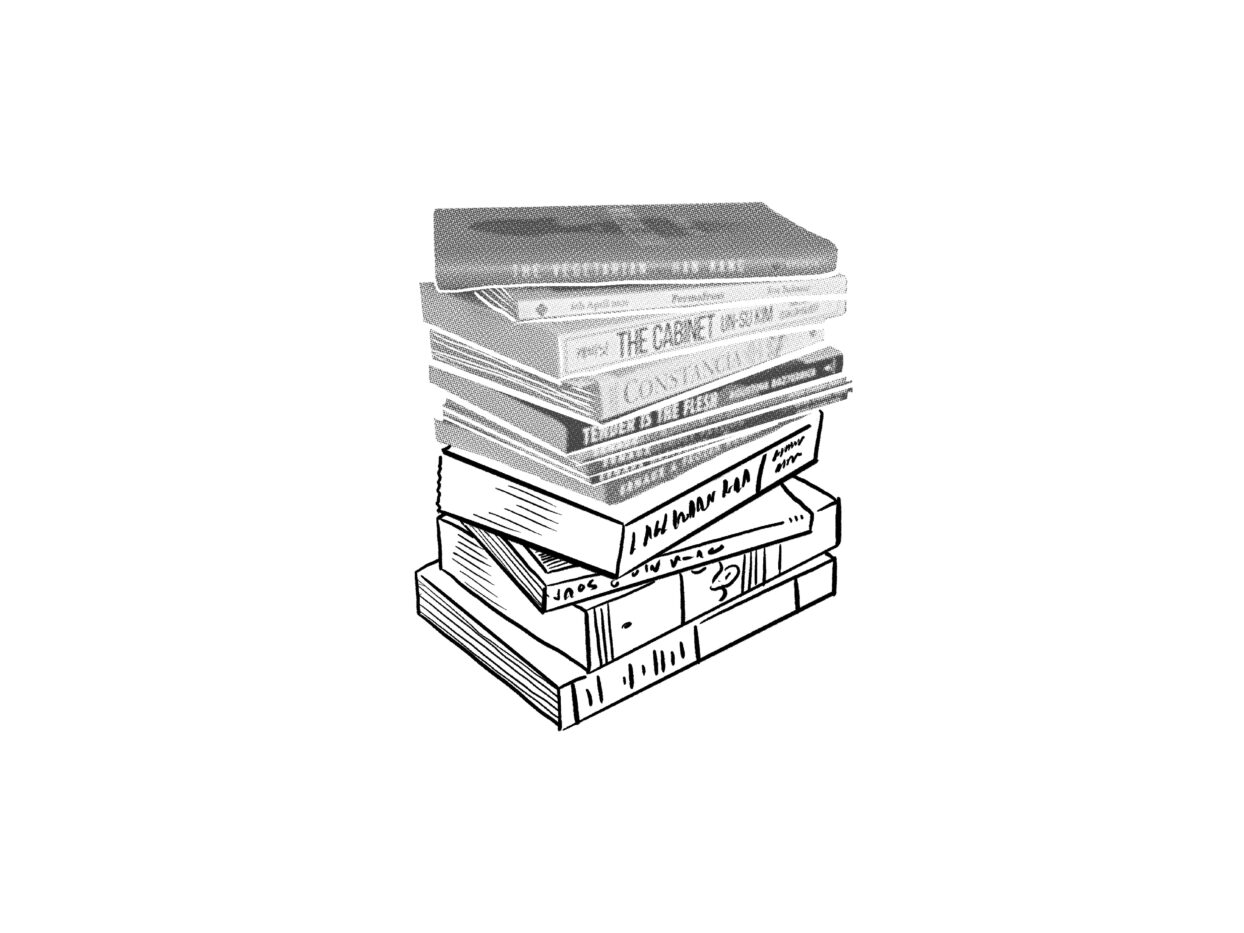
Image by Ivy Sanders Schneider

Image by Ivy Sanders Schneider
I must begin with my own condition. I’m a Palestinian writer and a citizen of Israel, my mother tongue is Arabic, I write in English, and I live in France. My novel does not fit in the category of Arab literature, because it is not written in Arabic; nor can it be American or English literature, because I am not American or British. Classifying it as French literature would be absurd, and as Israeli literature would be tragic.
This predicament is not unique to me. Is Nabokov an American writer? Is Fanon a French writer? Should Gibran sit with Sufi poetry or next to Said, or should Said be sorted with Fanon?
Some years ago, we might all have been classified under “world literature.” Recently, a new category has emerged, that of “literature in translation.” This designation assumes either that it is most important to acknowledge that we are not reading a book in its original language (a nice homage to the translator, but one that renders him or her especially visible), or that the language of origin is itself important in some way — reaffirming that there is such a thing as French literature, or Arabic literature, or English literature.
I am of the opinion that there is not. Of course, there is the top-down version of national literature, in which writers are canonized because their work serves the dominant narrative of their groups. A museum in Ramallah, established by presidential decree, is dedicated to Mahmoud Darwish, who wrote of land and exile. Emmanuel Macron said that Annie Ernaux, whose life and work appear to embody progressivism and feminism, “has been writing for fifty years the novel of the collective and intimate memory of our country.” But I don’t believe that authors of a particular language necessarily have anything in common. What does the world of Marcel Proust have to do with the world of Édouard Louis? How about Adania Shibli and Naguib Mahfouz, or Sally Rooney and Kurt Vonnegut? And why should literature in translation be considered a category in and of itself, grouping Nawal El Saadawi and Michel Houellebecq — widely known, respectively, as a Muslim feminist and an Islamophobic sexist, both brilliant — together on the one hand, and Percival Everett and Virginia Woolf on the other?
So how should we organize our shelves? The writer in me would say that we can adore all of these authors and simply call them influences. The capitalist in me would say that literature should be classified based on its consumer — that Annie Ernaux, Sally Rooney, and Virginia Woolf are marketed to and read by educated young women, while Michel Houellebecq, Kurt Vonnegut, and Marcel Proust are marketed to and read by educated white men. The Marxist in me would say that Édouard Louis and Annie Ernaux could go together, but Proust should probably go with Woolf. The stylist in me thinks Proust and Mahfouz are modernists while Shibli and Louis are contemporary minimalists. The anarchist in me would say abolish the categories altogether. The Christian in me would quote what Paul said of the kingdom of Christ: “There is no longer Jew or Greek, there is no longer slave or free, there is no longer male and female.” (Paul, too, defied classification. He was a Jewish citizen of Rome, born in what is now Turkey, writing in the hegemonic language of his time, which was Greek, although his mother tongue was probably Aramaic.) The reader in me would say that identity, setting, language, and style are important, but at the end of the day they’re the body, not the soul.
Drawing borders in literature runs counter to what literature does at its best: narrowing in on the specific until it’s the universal that remains, disembodying the human experience. I love Houellebecq for his portrayal of loneliness, not French terroir. I love Rooney for her portrayal of youth, not the Irish middle class. I love Darwish for his love, not his love of Palestine. Of course, every writer has a language, and that language colors their story, but their story wouldn’t touch us if what they’re saying couldn’t be said in our language, too. And similarly, every writer is from somewhere, and that somewhere colors their story, but we wouldn’t be touched by it if that somewhere weren’t also everywhere.
Yasmin Zaher’s first novel, The Coin, was published in 2024.